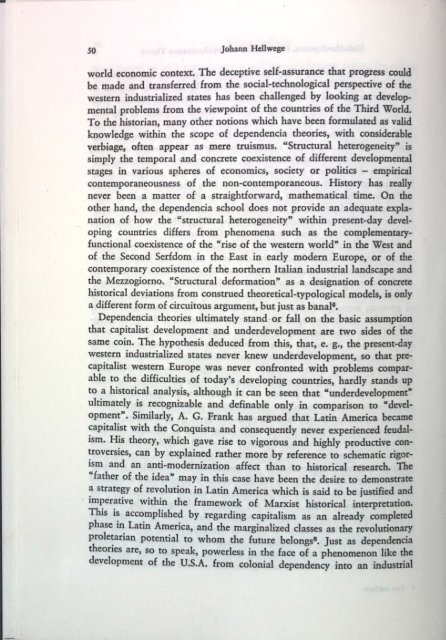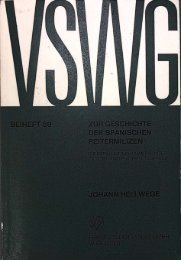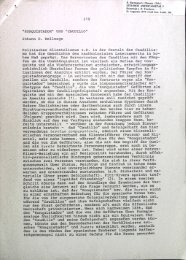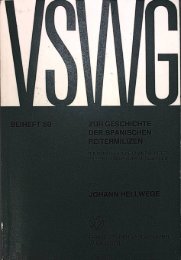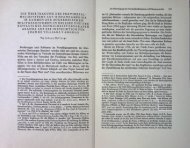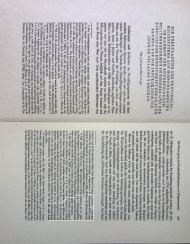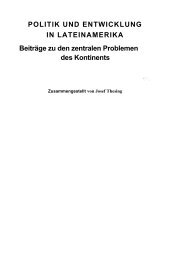9_Law and State_Volume 17
You also want an ePaper? Increase the reach of your titles
YUMPU automatically turns print PDFs into web optimized ePapers that Google loves.
50 Johann Hellwege<br />
world economic context. The deceptive self-assurance that progress could<br />
be made <strong>and</strong> transferred from the social-technological perspective of the<br />
western industrialized states has been challenged by looking at developmental<br />
problems from the viewpoint of the countries of the Third World.<br />
To the historian, many other notions which have been formulated as valid<br />
knowledge within the scope of dependencia theories, with considerable<br />
verbiage, often appear as mere truismus. “Structural heterogeneity” is<br />
simply the temporal <strong>and</strong> concrete coexistence of different developmental<br />
stages in various spheres of economics, society or politics — empirical<br />
contemporaneousness of the non-contemporaneous. History has really<br />
never been a matter of a straightforward, mathematical time. On the<br />
other h<strong>and</strong>, the dependencia school does not provide an adequate explanation<br />
of how the “structural heterogeneity” within present-day developing<br />
countries differs from phenomena such as the complementaryfunctional<br />
coexistence of the “rise of the western world” in the West <strong>and</strong><br />
of the Second Serfdom in the East in early modern Europe, or of the<br />
contemporary coexistence of the northern Italian industrial l<strong>and</strong>scape <strong>and</strong><br />
the Mezzogiorno. “Structural deformation” as a designation of concrete<br />
historical deviations from construed theoretical-typological models, is only<br />
a different form of circuitous argument, but just as banal8.<br />
Dependencia theories ultimately st<strong>and</strong> or fall on the basic assumption<br />
that capitalist development <strong>and</strong> underdevelopment are two sides of the<br />
same coin. The hypothesis deduced from this, that, e. g., the present-day<br />
western industrialized states never knew underdevelopment, so that precapitalist<br />
western Europe was never confronted with problems comparable<br />
to the difficulties of today’s developing countries, hardly st<strong>and</strong>s up<br />
to a historical analysis, although it can be seen that “underdevelopment”<br />
ultimately is recognizable <strong>and</strong> definable only in comparison to “development<br />
. Similarly, A. G. Frank has argued that Latin America became<br />
capitalist with the Conquista <strong>and</strong> consequently never experienced feudalism.<br />
His theory, which gave rise to vigorous <strong>and</strong> highly productive controversies,<br />
can by explained rather more by reference to schematic rigorism<br />
<strong>and</strong> an anti-modernization affect than to historical research. The<br />
father of the idea” may in this case have been the desire to demonstrate<br />
a strategy of revolution in Latin America which is said to be justified <strong>and</strong><br />
imperative within the framework of Marxist historical interpretation.<br />
This is accomplished by regarding capitalism as an already completed<br />
phase in Latin America, <strong>and</strong> the marginalized classes as the revolutionary<br />
proletarian potential to whom the future belongs8. Just as dependencia<br />
theories are, so to speak, powerless in the face of a phenomenon like the<br />
evelopnicnt of the U.S.A. from colonial dependency into an industrial


